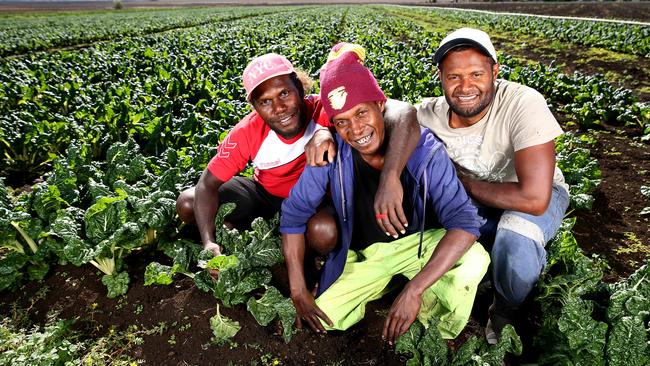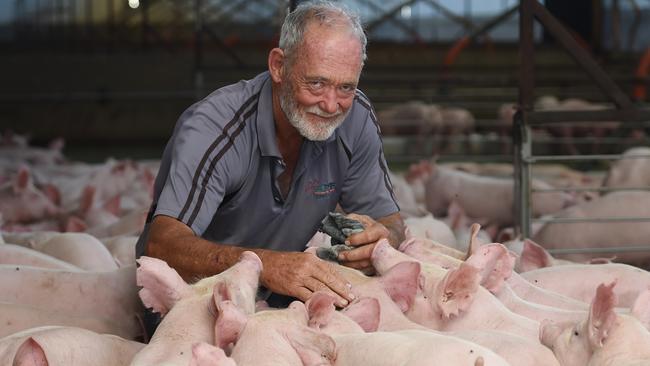Regional Australia Institute report calls for matchmaking service, incentives to bring migrants to rural communities
RURAL businesses are crying out for a matchmaking service to connect them with migrant workers who can help bolster shrinking regional communities.
News
Don't miss out on the headlines from News . Followed categories will be added to My News.
RURAL businesses are crying out for a matchmaking service to connect them with migrant workers who can help bolster shrinking regional communities.
An incentive scheme to help migrants cover the costs of relocating to rural areas has also been flagged as part of a major new report on the benefits of migration to regional Australia.
The Regional Australia Institute’s report, to be launched by Deputy Prime Minister Michael McCormack on Tuesday, reveals the Australian-born population of 151 regional local government areas has gone backwards while the number of overseas-born residents increased.
VISA RULES TO BIND MIGRANTS IN REGIONS
ANNIKA SMETHURST: IT’S TIME MIGRANTS MOVED TO THE REGIONS
NEW SKILLED MIGRANTS NOT FINDING PROFESSIONAL JOBS
It calls for a series of government policy changes to attract an extra 3000 migrants a year to live in regional communities, arguing that would stop the population declining in most rural areas.

The report comes as the Turnbull Government investigates new rules to bind arriving migrants to rural communities to shore up the regions and ease population growth in the nation’s big cities.
Regional Australia Institute chief Jack Archer said locally-led migration strategies in towns including Pyramid Hill, Hamilton and Nhill had helped them thrive, with some growing as much as 15 per cent.
“Now we need to connect the dots and help other rural towns capitalise on the opportunities migrant settlement programs can deliver,” Mr Archer said.

The report proposed a matchmaking service, set up by the government, which could allow small towns to identify and advertise their labour gaps in a transparent manner that would prevent worker exploitation.
It also called for incentives for migrants to move to the regions, including to encourage family reunions, and benefits for rural communities which established themselves as priority settlement areas.
“We know that many communities in rural Australia are ready to pursue this option — if we can make it easy for them to do so,” Mr Archer said.

The report said regional areas were struggling with labour shortages and declining populations, with businesses unable to rely on a permanent workforce to sustain themselves and grow.
But it said the current settlement system was inflexible and created barriers to migrants moving to rural communities.
In Pyramid Hill, the population has reached 550 with about 100 Filipino migrants, and new homes are being built for the first time in years.
Kia-Ora piggery owner Tom Smith employs 24 migrant workers and said they were his “biggest asset” which gave him the confidence to expand.


